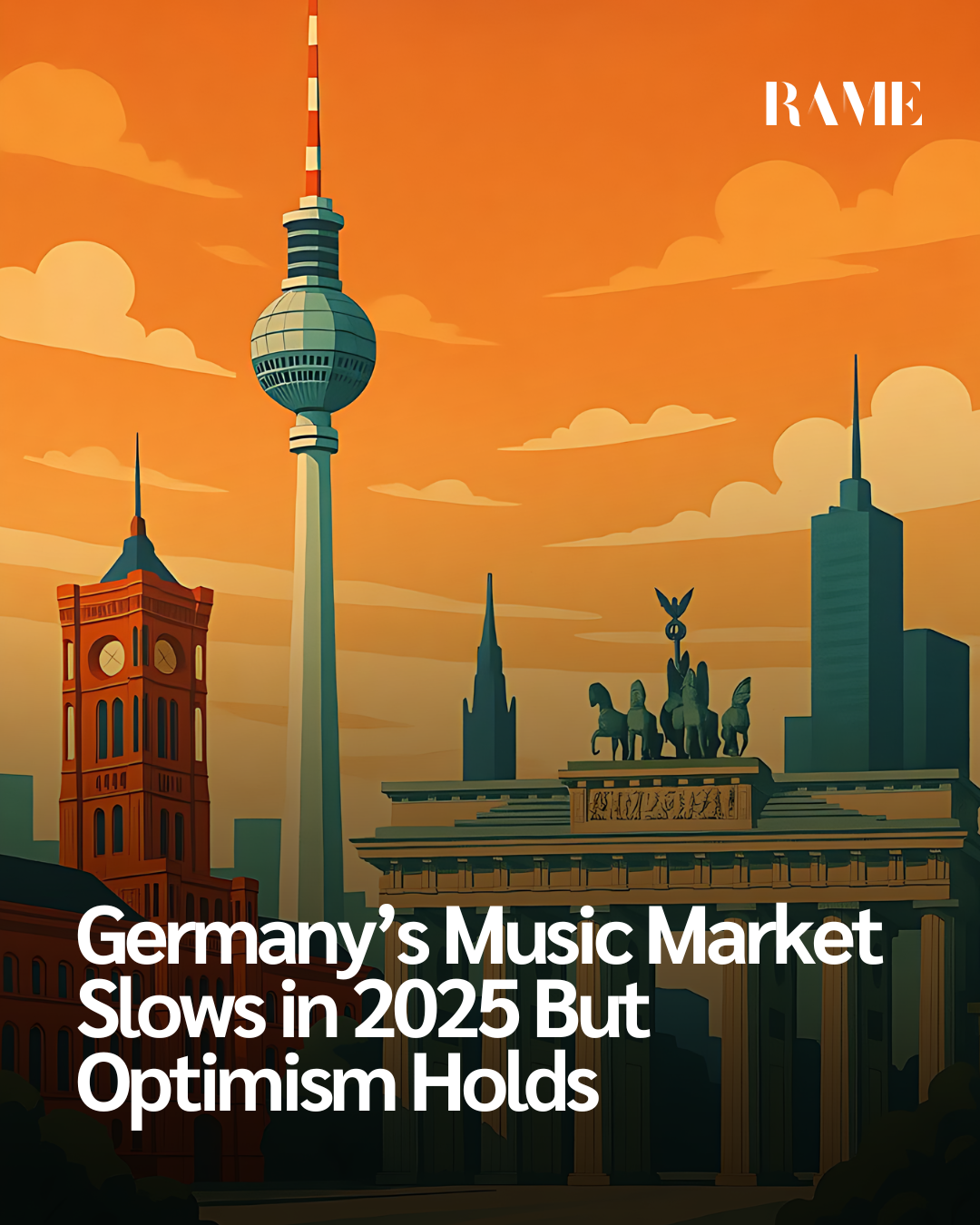Germany’s recorded music market just posted a 1.4% increase in retail sales for the first half of 2025. That’s a noticeable deceleration from last year’s growth rate. Yet the industry’s tone? Still cautiously optimistic.
Let’s break down what’s happening behind the numbers, the role of digital sales, and how sweeping AI regulation across Europe could shape the future of music licensing.
Sales Up But Barely
According to the German Music Industry Association (BVMI), Germany’s recorded music sales reached €1.157 billion (approximately $1.36 billion USD) between January and June 2025. That 1.4% year-on-year uptick looks modest compared to the 7.6% growth seen in the same period last year.
When adjusted for Germany’s current inflation rate hovering around 2% the reality is that music retail actually shrank slightly in real terms. This puts Germany, the world’s fourth-largest recorded music market, in a somewhat precarious spot: growth is still there, but it’s slowing, and the economic backdrop isn’t helping.
Digital Stays Resilient, Physical Falters
One silver lining in the report: digital music sales, including streaming and a la carte downloads, rose by 3.9% YoY. This is still positive momentum in a mature market.
The bad news? Physical sales took a sharp dive.
- CD sales dropped 20.1% YoY
- Overall physical formats fell 13.2%
Vinyl’s revival has likely plateaued, and CDs are in steep decline. This trend reflects not just evolving consumer behavior but also broader economic stagnation, as high energy costs and sluggish domestic output weigh down discretionary spending.
Still, there’s a glimmer of economic hope: Germany’s real GDP grew 0.3% in Q2 2025, marking a fragile but notable return to growth after two years of near-zero expansion.
BVMI: Growth Potential Remains
Despite the slowdown, Dr. Florian Drücke, Chairman and CEO of BVMI, remains upbeat.
“As an industry, we are currently in an exciting phase in which there is still potential for growth, even in developed markets such as Germany,”
– Dr. Florian Drücke, BVMI
Drücke points to one crucial factor behind that optimism: tech regulation. He believes Germany and the EU can secure music’s future revenue streams by pushing forward with legislation that protects rights in digital environments particularly with the use of music in AI training.
The AI Regulation Wildcard
Much of the music industry’s future depends on how AI is regulated in Europe. Large sections of the EU AI Act will come into force in early August 2025, and the European Commission has already introduced a voluntary Code of Practice for AI developers.
The Code has big implications for music rights:
- AI companies are expected not to scrape copyrighted content without permission.
- They must avoid using data from piracy websites.
- Companies must respect any opt-out notices from rightsholders.
Some of the biggest names in tech Anthropic, Microsoft, and OpenAI have agreed to the Code. But Meta Platforms, owner of Facebook and Instagram, has refused to sign on.
That refusal underscores why the opt-out mechanism is controversial. Critics argue it puts the burden on rightsholders to protect their work, instead of requiring AI companies to seek explicit permission.
Last year, Sony Music Group and Warner Music Group formally opted out of allowing their catalogs to be used for AI training.
GEMA Pushes for a Licensing Marketplace
Germany’s own GEMA, the performing rights society, is pushing hard for something more ambitious: a formal licensing marketplace where AI companies can pay to use copyrighted music.
“We are prepared to negotiate fair terms of use and remuneration models with the AI companies,”
– Christina von Gemmingen-Hornberg, GEMA
If realized, this model could not only protect artists and rights holders but open up a new revenue stream for the recorded music industry potentially offsetting losses in physical sales.
What This All Means for the Future
Germany’s slowing music sales might seem like a warning sign, but it’s not the full story. Yes, growth is cooling, and inflation is eroding gains. But digital sales are still climbing. AI regulation is moving in the right direction. And industry leaders are actively working to create frameworks that support music’s value in the algorithmic age.
The bigger picture? This is less about a market in decline and more about a market in transition. If Germany can navigate the policy side smartly and if global tech players cooperate it could set a global standard for how music survives and thrives in the AI era.



